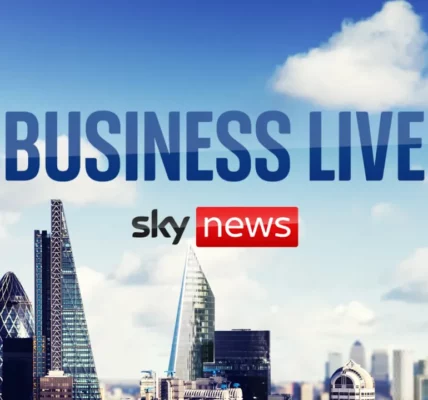Labor Launches Change Manifesto Aimed at Creating Wealth

The Labor Party has unveiled its new election manifesto, promising to deliver significant change and economic growth for the UK. This article delves into the manifesto’s contents, the political context, and public reactions as the elections approach.
Introduction
The political landscape in the UK is shifting as the Labor Party launches its new manifesto, aimed at addressing pressing issues such as healthcare, housing, and tax policies. This manifesto, touted as a roadmap for genuine change, has sparked debates about its feasibility and the potential implications for the British public. With the election looming, understanding the manifesto’s promises and public perception becomes crucial in evaluating its impact on the future of the UK.
Overview of Labor’s Manifesto
The newly released manifesto consists of over 100 pages, outlining various policies designed to create wealth and improve public services without the burden of new taxes. However, critics argue that many proposals are not new and that the manifesto lacks daring initiatives.
Main Points of the Manifesto
- No increases in VAT or income tax during the first term.
- Potential increases in capital gains tax and other levies have not been ruled out.
- Creation of 2 million additional NHS appointments yearly to reduce waiting times.
- Plans to scrap the controversial Rwanda immigration policy and establish a new border security command.
- Formation of a publicly owned energy company, “Great British Energy,” aimed at reducing electricity costs.
- A commitment to build 1.5 million new homes and reform planning regulations to increase housing supply.
Political Context and Reactions
The release of the manifesto comes at a pivotal moment in UK politics, with polls indicating that the Reform Party has overtaken the Conservatives for the first time. This shift heightens the stakes for the Labor Party as it attempts to solidify its lead with voters.
Public Perception of the Manifesto
Public response to the manifesto has been mixed, with many voters expressing skepticism about the feasibility of proposed initiatives. Concerns include:
- Whether the promised services can be delivered without raising taxes or making cuts to existing budgets.
- The lack of new and innovative policies, leading some to view the manifesto as a “captain caution” approach.
- Voter fatigue with repeated promises that may not come to fruition.
Key Figures in the Debate
Labor leader Keir Starmer has defended the manifesto as a carefully considered plan for the future, emphasizing the need for stability and growth. However, opposition parties have criticized the document for lacking ambition and clarity regarding funding sources.
Economic Implications of the Manifesto
One of the prominent features of the manifesto is its focus on economic growth. The Labor Party aims to position itself as a champion for investment and public service enhancement.
Tax Policies and Economic Growth
The manifesto outlines a commitment to avoid austerity measures while also rejecting the notion that taxes need to be significantly raised to fund public services. Key points include:
- A focus on increasing efficiency in public spending.
- Utilizing non-dom tax loopholes to generate additional revenue.
- Implementing VAT on private schools to bolster funding for public education.
Public Services and Investment
The promise of creating more NHS appointments and building new homes reflects a broader ambition to revitalize public services. However, the manifesto faces scrutiny regarding its actual execution and the funding required to meet these goals.
Conclusion
Labor’s manifesto presents a vision for change that aims to resonate with voters eager for improvement in public services and economic prosperity. While the document outlines a series of ambitious goals, the lack of new policies and the potential for increased taxation raise significant questions about its practicality. As the election approaches, it will be crucial for the Labor Party to effectively communicate its plans and build voter trust. For those interested in the future of the UK, understanding these political dynamics will be essential as we head towards the polls.
Stay informed about the latest developments in UK politics by exploring our related articles on economic policies and public service reforms.
“`




